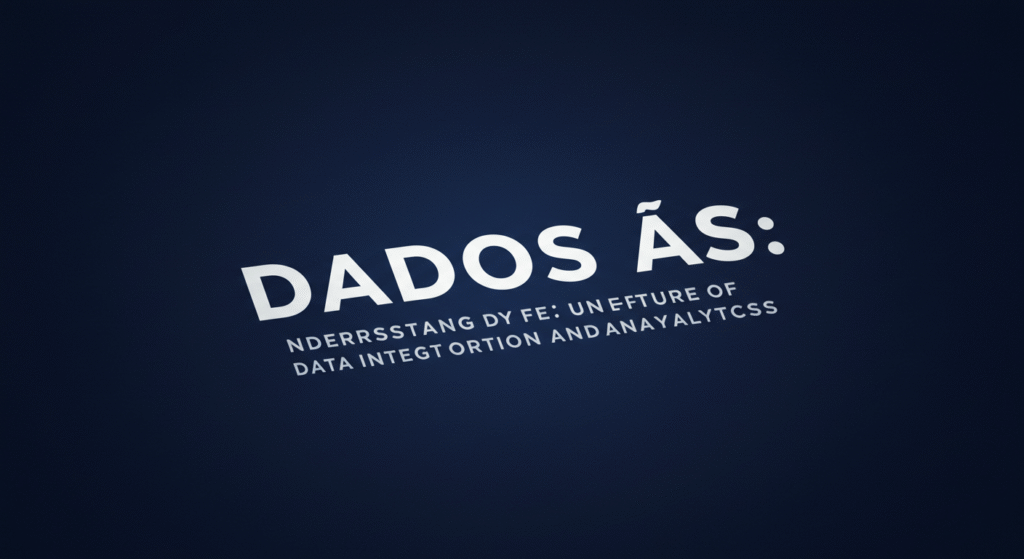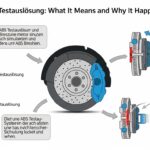In the modern digital landscape, dados as has emerged as a transformative concept shaping how organizations handle information. The phrase “dados as” originates from the Portuguese term dados, meaning data, and represents the evolving approach to data management, processing, and utilization. Businesses today rely on data not just as a byproduct of operations but as a core strategic asset. Through dados as, enterprises gain the ability to harness structured and unstructured data, convert it into valuable insights, and drive intelligent decision-making.
Data is now considered the new currency of the digital era. However, merely collecting data isn’t enough; the true power lies in interpreting and applying it effectively. This is where dados as stands out—bridging the gap between data storage and actionable analytics.
The Evolution of Dados As in the Digital World
The concept of dados as didn’t emerge overnight. Over the years, the technological revolution in cloud computing, artificial intelligence, and machine learning has redefined how we view data. In earlier decades, businesses stored massive volumes of data in isolated systems, making it hard to retrieve or analyze. With dados as, however, data becomes an accessible service that organizations can leverage across various departments.
This evolution signifies a shift from static databases to dynamic, real-time analytics. Companies now deploy advanced algorithms that process vast amounts of information to uncover patterns, trends, and predictions. In essence, dados as turns traditional data into a living ecosystem that continuously learns and adapts.
Why Dados As Matters for Businesses
The implementation of dados as offers businesses an unmatched advantage in an increasingly competitive market. Here are some of the key reasons why it matters:
| Aspect | Traditional Data Approach | Dados As Approach |
|---|---|---|
| Storage | On-premises, siloed systems | Cloud-based, unified access |
| Analysis | Manual and time-consuming | Automated, AI-driven |
| Decision-Making | Reactive | Predictive and proactive |
| Scalability | Limited resources | Virtually limitless with cloud infrastructure |
By integrating dados as, organizations move beyond traditional limitations. It enables seamless collaboration, faster innovation, and better customer engagement. From predictive analytics to customer personalization, data becomes the foundation of every strategic initiative.
How Dados As Drives Data-Driven Decision Making
One of the most significant benefits of dados as is the facilitation of data-driven decision-making. In industries ranging from healthcare to finance, companies depend on real-time data to make informed choices. Through advanced analytical tools, daos as platforms can process massive datasets and deliver meaningful insights within seconds.
For instance, a retail company using daos as can instantly analyze customer behavior, monitor sales performance, and adjust marketing strategies accordingly. Similarly, in the healthcare sector, it allows professionals to detect medical trends, track patient histories, and improve diagnostic accuracy.
With dados as, decision-making shifts from intuition-based to evidence-based, reducing risks and enhancing operational efficiency.
The Role of Artificial Intelligence in Dados As
Artificial intelligence (AI) and dados as are closely intertwined. AI empowers data systems to learn from patterns and make autonomous decisions, while dads as ensures a continuous supply of quality information for AI models.
Machine learning algorithms, a subset of AI, play a vital role in analyzing structured and unstructured data. They can predict customer preferences, detect anomalies, and recommend actionable solutions. As a result, dados as systems equipped with AI not only automate repetitive tasks but also offer predictive intelligence, helping businesses stay ahead of trends.
Security and Privacy in Dados As Platforms
While the benefits of dados as are immense, data security and privacy remain major concerns. As data moves across cloud networks and third-party integrations, safeguarding sensitive information becomes essential.
Leading dados as solutions incorporate end-to-end encryption, multi-factor authentication, and compliance frameworks like GDPR and HIPAA. These measures ensure that personal and corporate data remain secure while being analyzed and shared. Organizations adopting dads as must also invest in robust cybersecurity practices to prevent breaches and maintain trust among clients and stakeholders.
Implementing Dados As in Modern Enterprises
Implementing daos as requires a strategic approach that involves technology, culture, and governance. Businesses must first identify their key data sources and determine how to integrate them into a centralized system.
A typical dados as adoption strategy includes the following steps:
-
Data Assessment: Evaluating current data assets and identifying quality issues.
-
Infrastructure Setup: Choosing the right cloud-based or hybrid architecture.
-
Integration Tools: Utilizing APIs and ETL (Extract, Transform, Load) pipelines for seamless connectivity.
-
Data Governance: Establishing clear policies for data usage, security, and compliance.
-
Analytics Deployment: Applying machine learning and AI tools for real-time insights.
By following these stages, enterprises can transition smoothly to the daos as framework and unlock new opportunities for growth.
Challenges and Solutions in Dados As Adoption
Despite its benefits, dados as adoption is not without challenges. Common obstacles include data silos, inconsistent quality, and resistance to digital transformation. However, these can be overcome through proper planning and training.
| Challenge | Solution |
|---|---|
| Data Silos | Implement centralized data lakes |
| Quality Issues | Use data cleansing tools and validation mechanisms |
| Security Risks | Apply encryption and compliance protocols |
| Lack of Expertise | Conduct employee training and hire data professionals |
Overcoming these challenges ensures that daos as operates as an effective and secure data strategy for the long term.
The Future of Dados As
As technology continues to evolve, the future of dados as looks promising. The integration of AI, IoT (Internet of Things), and blockchain will further enhance data accessibility and reliability. Imagine smart devices generating real-time insights that automatically update dashboards through dads as platforms—this is the kind of innovation shaping tomorrow’s digital economy.
In the coming years, organizations that successfully adopt daos as will not only gain competitive advantages but also redefine how value is created from data. The goal is no longer to collect more information but to derive better meaning and impact from what’s already available.
Conclusion
In summary, dados as represents the next evolution of data management and analytics. It empowers organizations to transform raw data into actionable insights, driving innovation, efficiency, and smarter decision-making. Whether you’re a small business exploring digital transformation or a large enterprise aiming to refine your data strategy, dads as offers the tools and framework to succeed in a data-centric world.
By embracing this modern approach, companies can unlock the true potential of their data and pave the way for sustainable growth and innovation.






